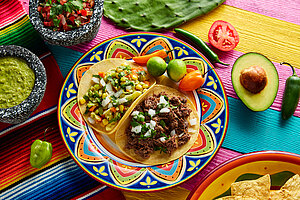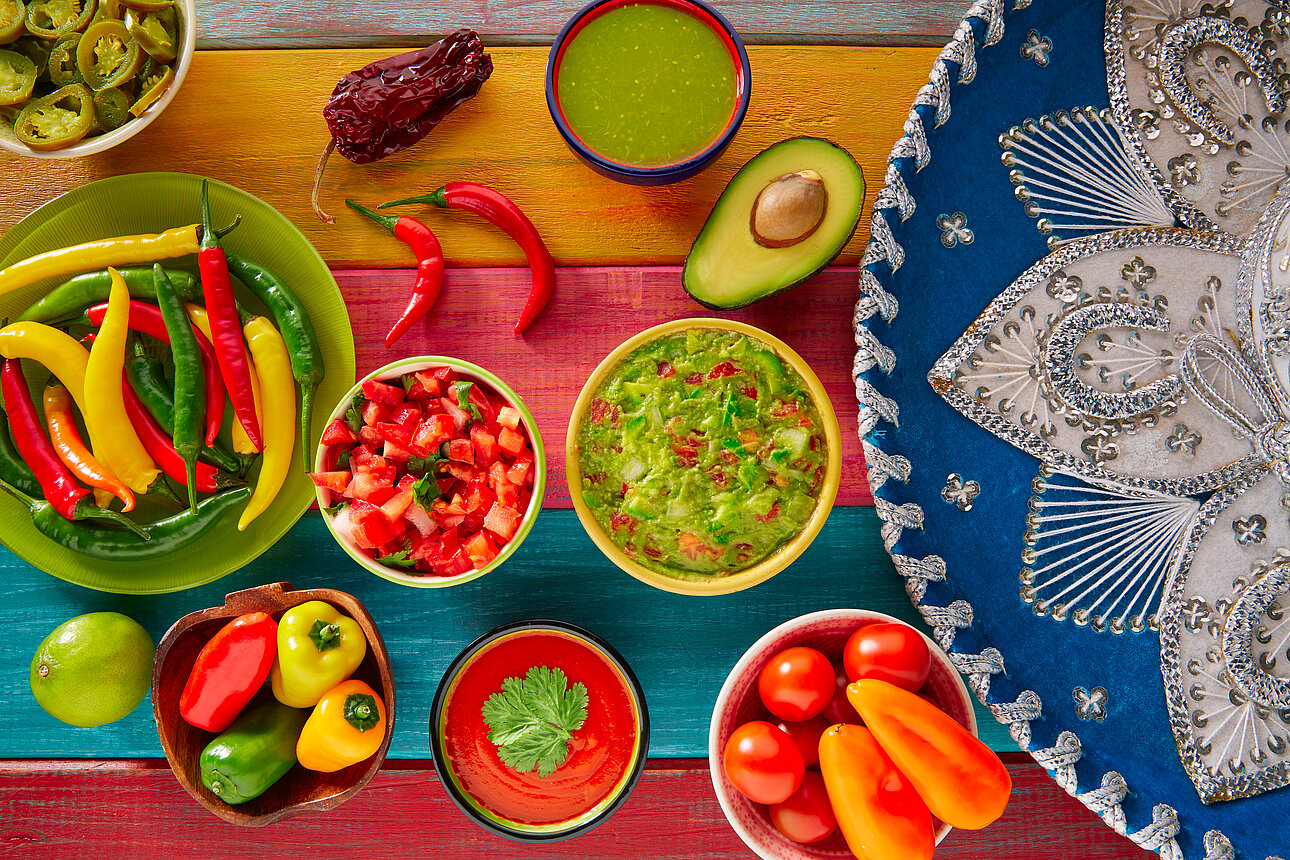 Mexico has a wealth of cuisine to explore, with diverse dishes representing different regions. Although options like Italian and Chinese food are always in demand across the U.S., Mexican food recently beat out other international cuisines to become the most popular among American diners.
Mexico has a wealth of cuisine to explore, with diverse dishes representing different regions. Although options like Italian and Chinese food are always in demand across the U.S., Mexican food recently beat out other international cuisines to become the most popular among American diners.
This popularity could be due to marketing efforts like Taco Tuesdays or the rising interest in international cuisine during the pandemic. Whatever the case, the unique flavors and versatile makeup of regional Mexican dishes are attracting widespread attention among U.S. consumers, particularly millennial and Gen Z diners.
Which regional foods, flavors, and ingredients are gaining popularity? And how can you adapt your menu to take advantage and provide adventurous eaters with innovative takes on regional Mexican faves?
Regional Cuisines Within Mexico
While tacos and Tex-Mex have long been a staple of the American culinary landscape, a growing interest in new flavors has driven the expansion of regional Mexican cuisines. Regions like Oaxaca, Yucatán, and Baja California offer distinctive cuisine styles that are capturing the American palate.
What do these regional cuisines have to offer, and where are they gaining a toehold in the states?
Oaxaca
This southern Mexican state may be best known for its classic mole dishes, particularly mole poblano, a rich chile and chocolate sauce.
Mole poblano is typically used to smother simple ingredients like boiled chicken, rice and beans, or enchiladas. Oaxacan cuisine also has a reputation for its cornucopia of traditional ingredients and beloved dishes that have spread throughout the whole country.
Guelaguetza, a Los Angeles institution in its second generation of family ownership, has been serving up the best of authentic Oaxacan cuisine since 1994 and introducing locals and visitors alike to Oaxacan culture along the way.
More recently, Oaxacan restaurants have started to appear in other cities across the U.S. Masas & Agaves in Boulder, CO, launched in 2023 with slow-cooked meats and farm-to-table fare, and Istmo in Chicago, IL, opened this year. Istmo prides itself on a menu of family recipes from the Istmo de Tehuantepec region of Oaxaca.
Related: New Street Food Trends Around the Globe
 Yucatán
Yucatán
The northern tip of the Yucatán Peninsula is renowned for unique flavors and ingredients with origins in Mayan cuisine. Sauces like achiote (from annatto seeds) and pipian (from pumpkin seeds) are distinctly Yucatán, but the most notable regional dish is cochinita pibil, a slow-roasted, pit-cooked pork dish featuring a marinade of bitter oranges and annatto seeds.
So far, this regional cuisine is found primarily in and around southern border states. Meso Maya Comida y Copas, with several locations in Dallas, TX, offers fresh Yucatán-inspired dishes, while Yucatán Taco Stand in Oklahoma City’s Bricktown district offers an upscale dining experience with roots in regional street food.
Never miss an update! Stay in touch! Sign up for our newsletter here
Baja California
Located south of California, this westernmost region of Mexico is known for casual cuisine like fried fish tacos and other seafood dishes. It’s no surprise, considering this area has one of the largest fishing industries in the country.
Baja-style tacos can be spotted on many a Mexican restaurant menu. Less common are establishments focusing solely on the food from this region, but they can be found, especially in California. Cali-Baja crossovers like Puesto and Ortega’s A Mexican Bistro dot the San Diego, CA, landscape, serving up chill vibes with fresh Baja-style seafood and margaritas.
Mexican Cuisine Shaping American Preferences
Around 1 in 10 restaurants in the U.S. serve Mexican food, and 85% of American counties boast at least one Mexican restaurant. However, the focus may be shifting from Tex-Mex, tacos, and other popular offerings to the novel dining experiences offered by region-specific cuisines, with an emphasis on introducing the American palate to unique flavors and dishes.
Get more insights into the latest food trends with Symrise. Contact us today to learn more!





